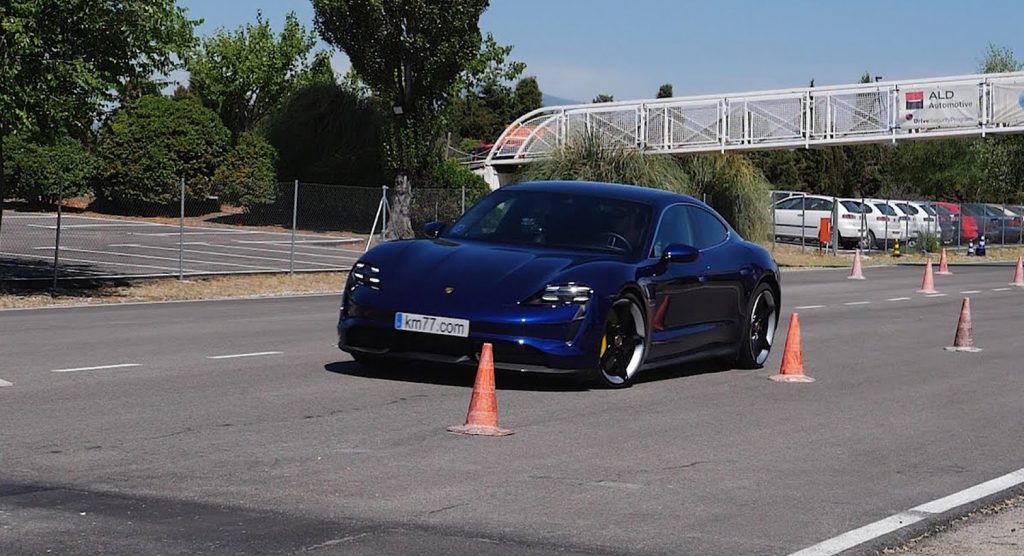Due to their low centers of gravity, electric vehicles have a big advantage over the ICE-powered cars in the moose test, but does this apply to the Porsche Taycan Turbo S?
Actually, it depends on the driver’s skills and the width of the road, because the zero-emission Tesla Model S challenger from Stuttgart is a very big car, so not hitting the cones is tricky.
In its defense, though, the range-topping Taycan, which was the one subjected to the test by Km77, handles more like a sports car than a luxury sedan, with almost no body roll, especially in the Sport+ driving mode, and after many failed attempts, it did pass at 48 mph (78 km/h). That is a good result, but not an outstanding one, the Spanish YouTube channel noted.
Review: Can The 750 HP Porsche Taycan Turbo S Impress A Pro Racing Driver?
The Tesla Model 3 tested last year passed with flying colors, with an entry speed of 52 mph (83 km/h), but the Model X couldn’t do better than 44 mph (70 km/h).
With a recommended starting price of $185,000 in the United States, $34,100 more than the mid-range Taycan Turbo and $81,200 more than the entry-level Taycan 4S, the Taycan Turbo S is, unsurprisingly, quite pricey.
Nevertheless, it offers supercar performance with enough luggage space for a weekend getaway and good leg- and headroom on the back seat. With Launch Control activated, it can go from rest to 60 mph (0-96 km/h) in a neck-snapping 2.6 seconds and max out at 161 mph (260 km/h).
The two electric motors produce a combined output and torque of up to 750 HP and 774 lb-ft (1,050 Nm), and its EPA-rated range, with the 93.4 kWh battery fully charged, is 192 miles (309 km).



